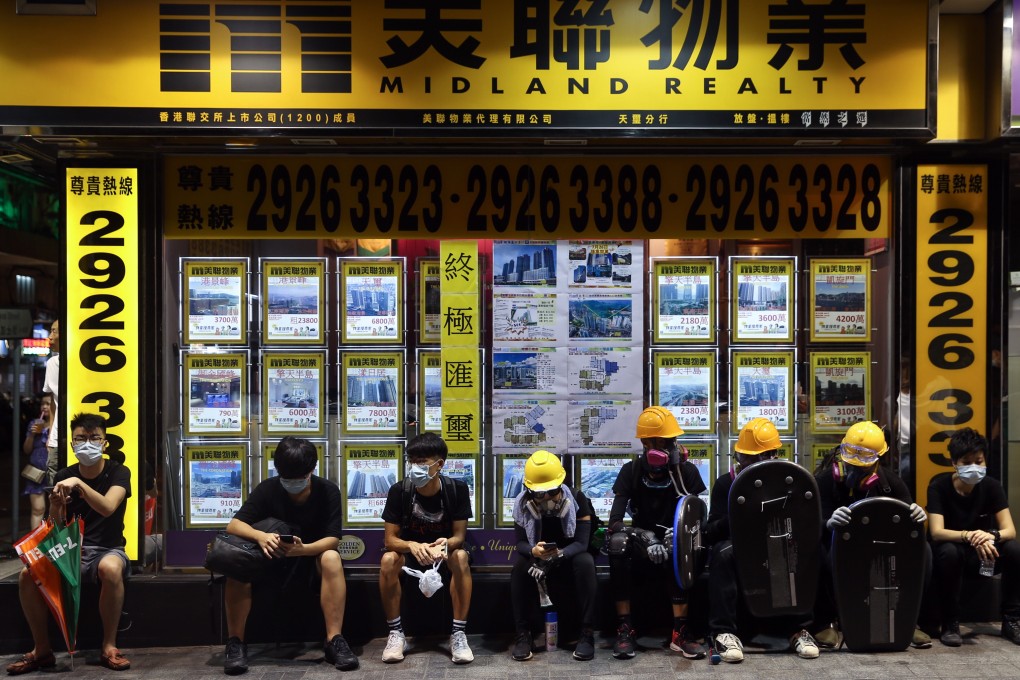Real estate professionals expect home prices, sales and rents to drop in next 12 months due to protests, survey finds
- Gauge shows a huge swing in sentiment from June – when peaceful demonstrations kicked off
- Protests are ‘the main catalyst cited as driving market pessimism,’ the Confidence Index finds

Real estate professionals expect home prices, sales and rents will fall in Hong Kong over the next 12 months as protests continue with no end in sight, accordingly to a newly released survey.
That is quite a change from the survey in June, the month peaceful protests kicked off in a colourful stream of umbrellas. Then the real estate professionals said they expected prices, sales and rents would go up.
The Confidence Index – by the Royal Institution of Chartered Surveyors (RICS) and local online property listing portal Spacious – shows positive or negative sentiment of respondents, with higher numbers signalling stronger feelings.
In August, overall confidence in the property market was negative 76. That was down from negative 54 in July and positive 4 in June.
“Although some survey respondents cited tariff escalation between China and the US as a headwind, the ongoing political unrest continues to be the main catalyst cited as driving market pessimism,” said Sean Ellison, RICS senior economist for Asia-Pacific.
“Participants also commented that a cessation of the protests appears to be unlikely in the near-term, which perhaps contributed to the more subdued medium-term outlook for the market,” he added.